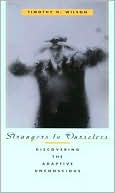Category Books
- Fiction Books & Literature
- Graphic Novels
- Horror
- Mystery & Crime
- Poetry
- Romance Books
- Science Fiction & Fantasy
- Thrillers
- Westerns
- Ages 0-2
- Ages 3-5
- Ages 6-8
- Ages 9-12
- Teens
- Children's Books
- African Americans
- Antiques & Collectibles
- Art, Architecture & Photography
- Bibles & Bible Studies
- Biography
- Business Books
- Christianity
- Computer Books & Technology Books
- Cookbooks, Food & Wine
- Crafts & Hobbies Books
- Education & Teaching
- Engineering
- Entertainment
- Foreign Languages
- Game Books
- Gay & Lesbian
- Health Books, Diet & Fitness Books
- History
- Home & Garden
- Humor Books
- Judaism & Judaica
- Law
- Medical Books
- New Age & Spirituality
- Nonfiction
- Parenting & Family
- Pets
- Philosophy
- Political Books & Current Events Books
- Psychology & Psychotherapy
- Reference
- Religion Books
- Science & Nature
- Self Improvement
- Sex & Relationships
- Social Sciences
- Sports & Adventure
- Study Guides & Test Prep
- Travel
- True Crime
- Weddings
- Women's Studies
Strangers to Ourselves: Discovering the Adaptive Unconscious »

Authors: Timothy D. Wilson
ISBN-13: 9780674013827, ISBN-10: 0674013824
Format: Paperback
Publisher: Harvard University Press
Date Published: March 2004
Edition: (Non-applicable)
Author Biography: Timothy D. Wilson
Timothy D. Wilson is Sherrell J. Aston Professor of Psychology at the University of Virginia.
Book Synopsis
"Know thyself," a precept as old as Socrates, is still good advice. But is introspection the best path to self-knowledge? What are we trying to discover, anyway? In an eye-opening tour of the unconscious, as contemporary psychological science has redefined it, Timothy D. Wilson introduces us to a hidden mental world of judgments, feelings, and motives that introspection may never show us.
This is not your psychoanalyst's unconscious. The adaptive unconscious that empirical psychology has revealed, and that Wilson describes, is much more than a repository of primitive drives and conflict-ridden memories. It is a set of pervasive, sophisticated mental processes that size up our worlds, set goals, and initiate action, all while we are consciously thinking about something else.
If we don't know ourselves—our potentials, feelings, or motives—it is most often, Wilson tells us, because we have developed a plausible story about ourselves that is out of touch with our adaptive unconscious. Citing evidence that too much introspection can actually do damage, Wilson makes the case for better ways of discovering our unconscious selves. If you want to know who you are or what you feel or what you're like, Wilson advises, pay attention to what you actually do and what other people think about you. Showing us an unconscious more powerful than Freud's, and even more pervasive in our daily life, Strangers to Ourselves marks a revolution in how we know ourselves.
Publishers Weekly
Freud introduced the West to the unconscious, but the last half-century of psychology has reinvented it, argues University of Virginia psychology professor Timothy D. Wilson. In Strangers to Ourselves: Discovering the Adaptive Unconscious, Wilson attempts to explain why there' s so much about ourselves that we fail to understand, which can lead to misdirected anger. He points to a revised, post-Freudian understanding of how the mind works: the reason that their own judgments, feelings, [and] motives remain mysterious to people is not repression, as Freud argued, but efficiency so that the mind can process and analyze multiple things at once. Wilson looks at ways that readers can probe their unconscious, suggesting that soliciting the opinions of others is actually more valuable than introspection. Copyright 2002 Cahners Business Information.
Table of Contents
| Preface | ||
| 1 | Freud's Genius, Freud's Myopia | 1 |
| 2 | The Adaptive Unconscious | 17 |
| 3 | Who's in Charge? | 43 |
| 4 | Knowing Who We Are | 67 |
| 5 | Knowing Why | 93 |
| 6 | Knowing How We Feel | 117 |
| 7 | Knowing How We Will Feel | 137 |
| 8 | Introspection and Self-Narratives | 159 |
| 9 | Looking Outward to Know Ourselves | 183 |
| 10 | Observing and Changing Our Behavior | 203 |
| Notes | 223 | |
| Bibliography | 237 | |
| Index | 257 |
Subjects
 Philosophy
Philosophy  Major Branches of Philosophical Study
Major Branches of Philosophical StudyNonfiction
 Psychology
Psychology  Psychology - Theory, History & Research
Psychology - Theory, History & ResearchPhilosophy
 Major Branches of Philosophical Study
Major Branches of Philosophical Study  Mind, Philosophy of
Mind, Philosophy ofPsychology & Psychotherapy
 Psychology - Theory, History & Research
Psychology - Theory, History & Research  Psychoanalytical Psychology
Psychoanalytical PsychologyMedical Books
 Psychology & Psychotherapy
Psychology & Psychotherapy  Psychology - Theory, History & Research
Psychology - Theory, History & Research
